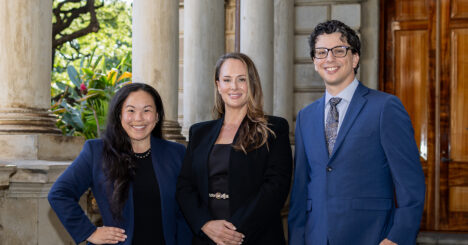On January 21, 2020, the Hawai‘i Supreme Court ruled in favor of Cades Schutte client Auwahi Wind Energy LLC (“Auwahi”), which operates a wind farm on Maui. The supreme court held that the towers and turbines on Auwahi’s wind farm cannot be taxed as “real property” by the County of Maui (the “County”) under the Hawai‘i Constitution. The ruling will result in substantial tax savings to Cades’ client and promote the feasibility of renewable energy development throughout the State of Hawai‘i.
Several years ago, the County started assessing wind farm towers and turbines as taxable “real property.” Initially, the Tax Appeal Court and the Hawai‘i Intermediate Court of Appeals concluded that wind towers and turbines do not qualify as “real property” under the County’s own definition of “real property” in its ordinance, which tracked the traditional definition of “real property.” In response, the County amended the definition in its ordinance to specifically include “wind energy conversion property,” and the County thereupon continued assessing wind towers and turbines as taxable “real property.”
Auwahi and another wind farm operator in Maui challenged the ordinance and assessments as violative of the Hawai‘i Constitution, which generally only allows the counties to tax “real property” and reserves all other taxing authority to the state legislature. The Tax Appeal Court entered judgment in favor of the wind farm operators, and the County appealed. In its published opinion, the Hawai‘i Supreme Court held that “the County exceeded its constitutional authority by amending [its ordinance] to expand its definition of ‘real property’ to include ‘personal property’ . . . .” The Supreme Court further held that “the delegates to the 1978 Constitutional Convention did not intend to grant the counties the power to define the term [‘real property’],” and instead “intended for this power to be reserved to the legislature.” Accordingly, the Supreme Court affirmed the Tax Appeal Court’s judgments.
The Cades Schutte team on the appeal included partners Vito Galati and Christopher T. Goodin and associates Trisha H.S.T. Akagi and Mallory T. Martin.





